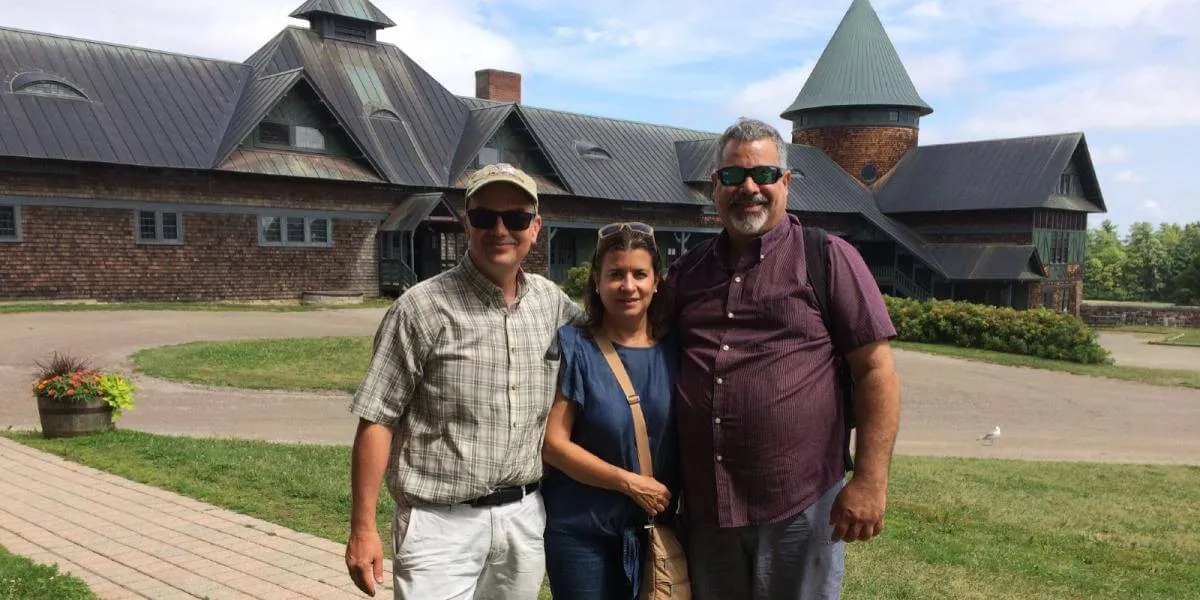Earlier this month the U.S. Department of Agriculture’s National Institute of Food and Agriculture (NIFA) awarded 12 grants to institutions across the United States for rural economic development projects as part of NIFA’s Agriculture and Food Research Initiative.
One of the recipients is UVM, which will use $139,955 in funding to build on an existing research partnership with the University of Puerto Rico-Mayaguez called Seeding Food Resilience through Anchor Institutions. Clark University in Worcester, Mass., joins the partnership in this round of funding.
David Conner, professor in the Community Development and Applied Economics Department in UVM’s College of Agriculture and Life Sciences (CALS), is the principal investigator for the grant. He describes the funding as a seed grant to perform basic research and identify potential for each institution to contribute to community and food system resilience, with particular focus on workforce and market development.
At first glance, New England and Puerto Rico might seem unnatural partners for rural agriculture collaborations.
“We’re far apart in terms of latitude and the products we can grow,” said Conner, “but we face many of the same issues. One is the ‘brain drain’—the challenge of finding meaningful careers for young, talented people, giving them a reason to stay.”
Agriculture in both regions is anchored by small rural farms. This scale makes it difficult for New England and Puerto Rican farms to be profitable in commodity markets.
“So much of U.S. and global agriculture is a race to bottom—who can externalize costs the best and sell food at the lowest price. Our farms also have a hard time competing with low-cost imports.”
Stronger Together
Before Conner left for a trip to Puerto Rico during his spring sabbatical in 2019, Alexis Rodriguez-Cruz, a PhD candidate in UVM’s Food Systems program, arranged for him to meet several faculty mentors from his undergraduate days at the University of Puerto Rico-Mayaguez.
Robinson Rodríguez Pérez is a rural sociologist and Anibal Ruiz in Dean of Extension at UPR-Mayaguez, Puerto Rico’s land grant university.
“After about an hour of conversation I knew we’d be friends for life,” says Conner. “They were dedicated, charismatic, effective. And we began to explore the joint strengths and challenges we faced.”
Both Puerto Rico and Vermont have well-developed local food systems, a culture of cooperation, and strong anchor institutions like schools and hospitals that are eager to buy healthy locally grown food. One of the key research goals will be to strengthen partnerships between larger institutional buyers and local growers.
The collaboration leverages benefits that each participant could not achieve on its own. By partnering with UVM and Clark, researchers at UPR-Mayaguez will have the depth of resources to apply for larger USDA grants. UPR can contribute expertise in handling disasters like Hurricane Maria in 2017 which destroyed 80% of the country’s crop value.
Vermont has experienced its own natural disasters in recent years and will undoubtably face more in the future.
Tropical Storm Irene dumped foot of rain on the Green Mountain state on August 28, 2011, resulting in $20 million in agricultural losses. The flooding overwhelmed water treatment plants leading to contaminated crops.
“UPR has a lot to teach us about how to marshal the resources to deal with immediate aftereffects of disasters and then how to put response systems in place so the next shock isn’t as damaging,” Conner says.
The UPR Project Advisory Team will investigate ways that UVM Extension can deploy rapid response teams when disaster strikes and use the management skills and technical knowledge to get the right resources to the right places at the right time.
Conner believes the grant will provide new knowledge for both regions to build market capacity for small farmers.
“A key element is our approach to community and community development was so much in synch,” Conner said, referring to his colleagues at UPR. “It’s all based on getting into communities, doing highly applied research and solving problems.”
